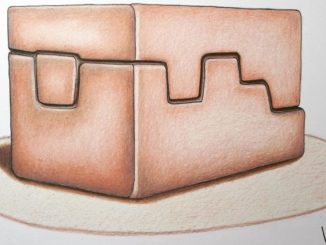Unlike the French, who have an academy to maintain the purity of their language, we English speakers have no such institution, nor do we desire one. We delight in moving words between parts of speech, and with open arms we welcome new words to the language.
Anyone remember when friend and party were just nouns? How about these newcomers: manspreading, ginormous, snackable, hangry? How did we ever live without these beauties?
Anyway, what better time but during a global pandemic for further expansion of the English language to help express our new reality? Thanks to the information in this wonderful article from inews, by lexicographer and etymologist Susie Dent, we English speakers have been saved the effort of constructing new words. The words we need already exist in other languages.
First, you know all that crazy eating we’re doing? In English, we’re lame. We call it “stress eating.” That’s not very original. Just a lazy adjective in front of a limp participle. It’s barely even a phrase.
Check out this word from the Japanese, however:
kuchisabishii.
Don’t lie–you had fun trying to pronounce it, right?
Equally terrific is the definition, provided by Dent: “When you’re not hungry, but you eat because your mouth is lonely.”
Oh my God. My mouth is SO lonely right now.
All the time.
Anyone else have a lonely mouth?
Equally useful to describe our new eating habits is the German word Kummerspeck, which refers to the excess pounds we accumulate due to eating more than usual “during times of difficulty and frustration.”
Is that not describing pretty much every over-eater you know right now?
According to Dent, this word literally means “grief bacon,” which actually kind of stresses me out as I’m a vegetarian; the thought of people porking out on bacon, eating all those poor pigs, makes me feel really sad.
My German friend Helga tells me it’s okay if I want to substitute cheese and instead say Kummerkase. Although that doesn’t quite have the same ring to it, and unfortunately, it sounds a bit like Kamikaze, which makes me think of violence, which is even worse.
When I looked up Kamikaze, though, I discovered it didn’t originally mean suicide bomber planes. The word originated from a ferocious typhoon that vanquished invading ships in the 13th century, preventing Japan from falling under Mongrel rule.
It’s a lovely sounding word, with its alliteration and rhyme; it’s a shame that a natural phenomenon morphed into something evoking such violent imagery–all those airplanes dive bombing ships in World War II.
Although who wouldn’t welcome a Kamikaze/typhoon that could wipe out the current invasion, clean it off the earth’s surfaces? We could call it Koronakazi.
Chances are small that a Koronakzi might end the pandemic, so next best bet is science. Here we return to German, which provides this beauty: Modellbetrachtungen. According to Dent, it means model-based observations.
Hats off to the Germans twice here. First, they’ve squeezed two adjectives and a noun into one word. Well done!
More importantly, this word encapsulates a concept that everyone who ever runs for political office, starting yesterday, should understand. If you don’t understand how models work, don’t run for office, don’t be a public servant, don’t think you should be in charge of anyone’s life except your own.
That’s why it’s called Public Service. Public!
I doubt Mark Twain ever saw the word Modellbetrachtungen, but certainly his famously thorny relationship with the German language would have extended to it. As Dent relays, Twain once wrote, “Whenever the literary German dives into a sentence, that is the last you are going to see of him till he emerges on the other side of his Atlantic with his verb in his mouth.” Twain also referred to long German words as “alphabetical processions,” according to Dent.
Now, imagine if Mark Twain had come face to face with Basque! German, despite its long words, is not even an agglutinative language, while Basque, the language spoken where I am in lockdown during the pandemic, is most certainly one. In fact Basque, like all agglutinative languages, builds compound words by adding so many little words together that they make big German words look downright emaciated.
In case you don’t believe me, here’s an agglutinative beauty from Basque: Azpilicuetagaraicosaroyarenberecolarrea.
This word was so long it broke Google Translate and I had to seek human help. (It turns out regular Google could handle it, as I learned from a translator friend, who, impatient with my pestering for help, taught me a new acronym: JFGI. If that acronym had vowels, it would definitely become a new English word, like FOMO, but because we are not Czech or Croatian and we need vowels to pronounce our words, we’ll have to stick with the written version of JFGI. And if you don’t know what it means, then JFGI. Yes, it has a verb in it. Do it. Once you figure it out, you can then proudly say IFGI, which I learned from fellow contributor Glenda Daniel. This acronym is pronounceable and thus hereby declared a new English word because I said so, and that’s how new words make it into the English language. As Captain Picard of Star Trek liked to say, “Make it so.” IFGI it is).
Anyway, that long Basque word means “the high corral in the lower field of Azpilicueta,” Azpilicueta being a small village in the Baztan Valley in the province of Navarra, some fifty miles south of San Sebastian.
Why this concept of high corrals and low fields needs to be condensed into one word is beyond me; perhaps it’s an important directional signpost or maybe even a cultural marker in that village. Perhaps important historical things happened in that high corral in the lower field.
Or, perhaps the Basques of Azpilicueta just wanted fifth place in the world’s longest-word-competition, and this was the best they could come up with.
Anyway, after reading about the Baztan Valley in contributor Georgina Howard’s posts, and viewing pictures of her lovely home in the Baztan Valley, I’m all for hiding out somewhere near the higher corral of the lower field of any Baztan village to wait out the end of the pandemic.
Which brings us back full circle to endings. We have no idea when this pandemic will end, but given that outside of China, the virus launched most ferociously into the world starting in western Europe, it’s fitting that two Romance languages will supply the words we’ll most need at the end.
From the French comes retrouvailles, translated by Dent as “the happiness of seeing someone after a long time apart.”
Oh yes, we will ALL need lots of that, for a very long time. Without question. Thank you to the French for that lovely word. (Just don’t ask me to pronounce it. Especially not in front of a French person.)
Finally, in the even more distant future, when the pandemic is a far gone memory, which it will be someday, we might borrow from the Italians the notion of sprezzatura, a studied nonchalance “that makes it look as though you’re never trying too hard.”
Because we’re all trying really hard to stay sane and healthy now. And with all of the uncertainty, it’s tiring and stressful and head-wrecking.
Having the luxury of not having to try too hard at anything, even just practicing that we’re looking like we’re not trying to do anything, is something to look forward to, and would be a gift indeed.
No matter how we say it. Or any other word, for that matter.



Really love this, Diana! And you make it look so easy. Sprezzatura.
Haha. Maybe we can practice Sprezzatura before lockdown ends. On Zoom?
Great fun on several levels. Love the jumping off point and where you took it. The windmills of a quarantined mind. “Grief bacon” is a now a permanent addition to my lexicon. Thanks!
Thanks! Grief bacon, grief cheese, grief wine, grief cookies, the possibilities are endless, as is this lockdown!!!!!
And “windmills of a quarantined mind” is now added to my list of favorite phrases.
Brilliant article Diana!
Thank you :). Waiting for your next one!
Fun article! There was Kukuxumuxu until they went out of business. The same artist drew a character called Katuki Saguyaki. Maybe he should try Azpilicuetagaraicosaroyarenberecolarrea next time.
Would love to see Kukuxumuxu tackle Azpilicuetagaraicosaroyarenberecolarrea. Or maybe give it to a bertsolari? Is this word even pronounceable?
Very entertaining. Keep up the good work!
Thank you. And you keep the humor coming on whatsapp…
Diana- this is a delightful piece of writing. I had no idea you were even in Spain during this strange and difficult time. I’m glad to hear you sounding so high-spirited. You’ve certainly lifted mine. Can’t wait for the next one.
HI Rachel, thanks for stopping by. Glad to be lifting anyone’s spirits right now! Crazy times. Hope you are ok!